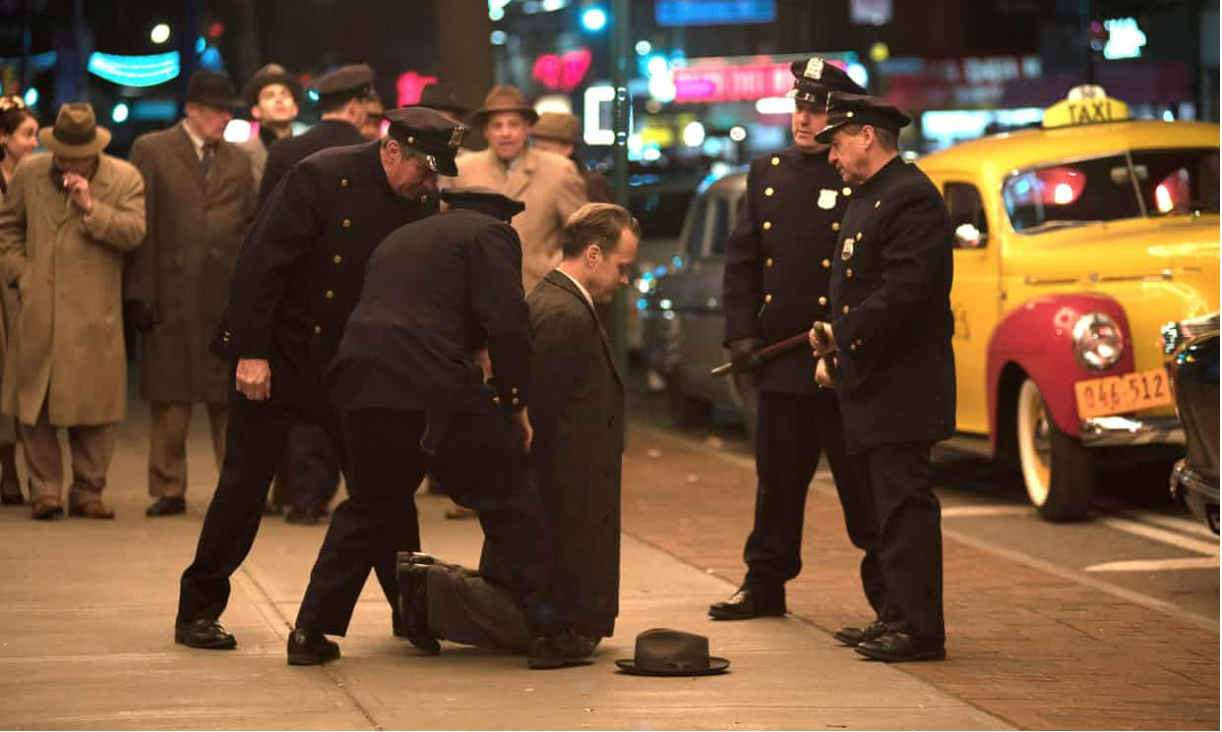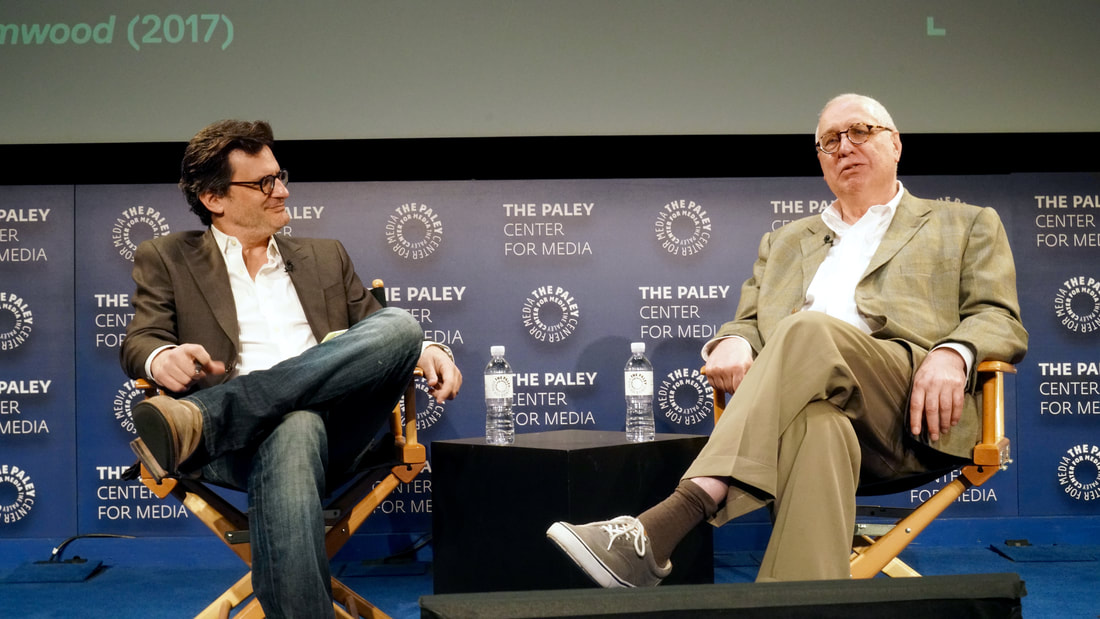|
Director's lengthy true-crime piece runs afoul of Oscar's O.J. rule Errol Morris may have won an Oscar -- for his 2004 film The Fog of War -- but that doesn't mean he thinks the Motion Picture Academy has treated him fairly over the years. Take his latest project, the four hour-long Wormwood, a true-crime story of Frank Olson, a CIA operative and biological weapons researcher who died under mysterious circumstances in 1953. It has been ruled ineligible for consideration as a documentary. "Wormwood is being snubbed by the Academy, by the documentary branch of the Academy," Morris told an audience at an IDA Conversation Series discussion on Monday. It bothered me. Wormwood premiered at Telluride, then played at the Venice Film Festival and will get at least some exposure in theaters before debuting on Netflix December 15. Netflix has described it as a multi-part series, even if to Morris such categorizations are immaterial. Nonetheless, the Academy apparently took Netflix at its word. The Oscar documentary branch judged Wormwood ineligible under new rules imposed earlier this year after the Oscar win by Ezra Edelman's O.J.: Made in America, a seven hour-long piece that some considered more of a miniseries than a single film. Rule no. 7 states:
Wormwood was not deemed ineligible for consideration as a documentary because of its extensive use of dramatizations -- at least according to my Academy sources. Morris has used the technique in other documentaries, including The Thin Blue Line, but in Wormwood he takes it to a new level. Peter Sarsgaard plays Olson in extensive scenes, part of a cast of actors that includes Bob Balaban, Tim Blake Nelson, Molly Parker and Scott Shepherd. Morris seamlessly weaves the dramatizations into home movies of the Olson family and other archival material, as well as interviews with the scientist's son, Eric Olson. The younger Olson has spent a lifetime trying to get to the bottom of what happened to his father (the government said Frank Olson committed suicide -- plunging from the 13th floor of a New York hotel room -- after a bad reaction to LSD, which he had ingested in a drink spiked by a supervisor). It may not bring Morris a lot of comfort, but the Academy says Wormwood is eligible for Oscar consideration in a host of other categories -- presumably Best Picture, Actor, cinematography, score, etc. This begs the question of why a piece judged a multi-part series -- and not a film -- by one branch of the Academy, would be considered a film by other branches. Presumably, the answer is that other branches have not specifically adopted rules to prohibit "multi-parters" from consideration. At the IDA Conversation Series event, Morris told moderator Ben Mankiewicz of another Academy experience that apparently still rankles -- the snubbing of The Thin Blue Line, now considered one of the most important films in the genre. Morris said some documentary branch voters -- apparently put off by the film's use of dramatizations and the score by Philip Glass -- registered their disapproval at one of the Academy's screenings set up for voters to watch contending films. "In those days [doc branch voters] would have flashlights and they would wave the flashlights if they wanted the movie turned off. And the flashlights starting waving back and forth within minutes of the reenactment at the very, very beginning of The Thin Blue Line," Morris said. "The music starts and there couldn't have been many Philip Glass fans in that particular audience and they turned it off." "It bothered me," he admitted of the pan from the doc branch. Almost 30 years later, the Academy response to Wormwood has been no more gratifying. On a more positive note, another Morris documentary has qualified for Oscar consideration this year -- The B-Side: Elsa Dorfman's Portrait Photography. The director's affectionate film about his friend, the large-scale portrait photographer Elsa Dorfman, played in theaters over the summer.
Note: this piece has been updated to indicate Wormwood premiered at the Telluride Film Festival, and to clarify the nature of the screening in the late 1980s at which some Academy doc branch members registered disapproval of The Thin Blue Line. The piece also updated with the paragraph above indicating Morris' Elsa Dorfman documentary has been deemed eligible for Oscar consideration. |
AuthorMatthew Carey is a documentary filmmaker and journalist. His work has appeared on Deadline.com, CNN, CNN.com, TheWrap.com, NBCNews.com and in Documentary magazine. |
- Home
- News
- Videos
-
Galleries
- 2019 Tribeca Film Festival
- Full Frame Documentary Film Festival
- 2019 SXSW Film Festival
- SXSW 2018 Gallery
- 2019 Sundance Film Festival
- Outfest 2018 Photo Gallery
- Outfest 2017
- Sundance 2018 Photos
- 2017 LA Film Festival
- 2017 Cannes Film Festival
- Tribeca Film Festival 2017
- SXSW 2017 Gallery
- 2017 Berlin Film Festival
- Sundance 2017 Gallery
- 2016 Los Angeles Film Festival
- Cannes Film Festival 2016
- SXSW 2016 Gallery
- Berlinale 2016 Gallery
- Sundance 2016 Gallery
- Filmmaker Gallery
- About
- Contact
Proudly powered by Weebly
- Home
- News
- Videos
-
Galleries
- 2019 Tribeca Film Festival
- Full Frame Documentary Film Festival
- 2019 SXSW Film Festival
- SXSW 2018 Gallery
- 2019 Sundance Film Festival
- Outfest 2018 Photo Gallery
- Outfest 2017
- Sundance 2018 Photos
- 2017 LA Film Festival
- 2017 Cannes Film Festival
- Tribeca Film Festival 2017
- SXSW 2017 Gallery
- 2017 Berlin Film Festival
- Sundance 2017 Gallery
- 2016 Los Angeles Film Festival
- Cannes Film Festival 2016
- SXSW 2016 Gallery
- Berlinale 2016 Gallery
- Sundance 2016 Gallery
- Filmmaker Gallery
- About
- Contact





 RSS Feed
RSS Feed